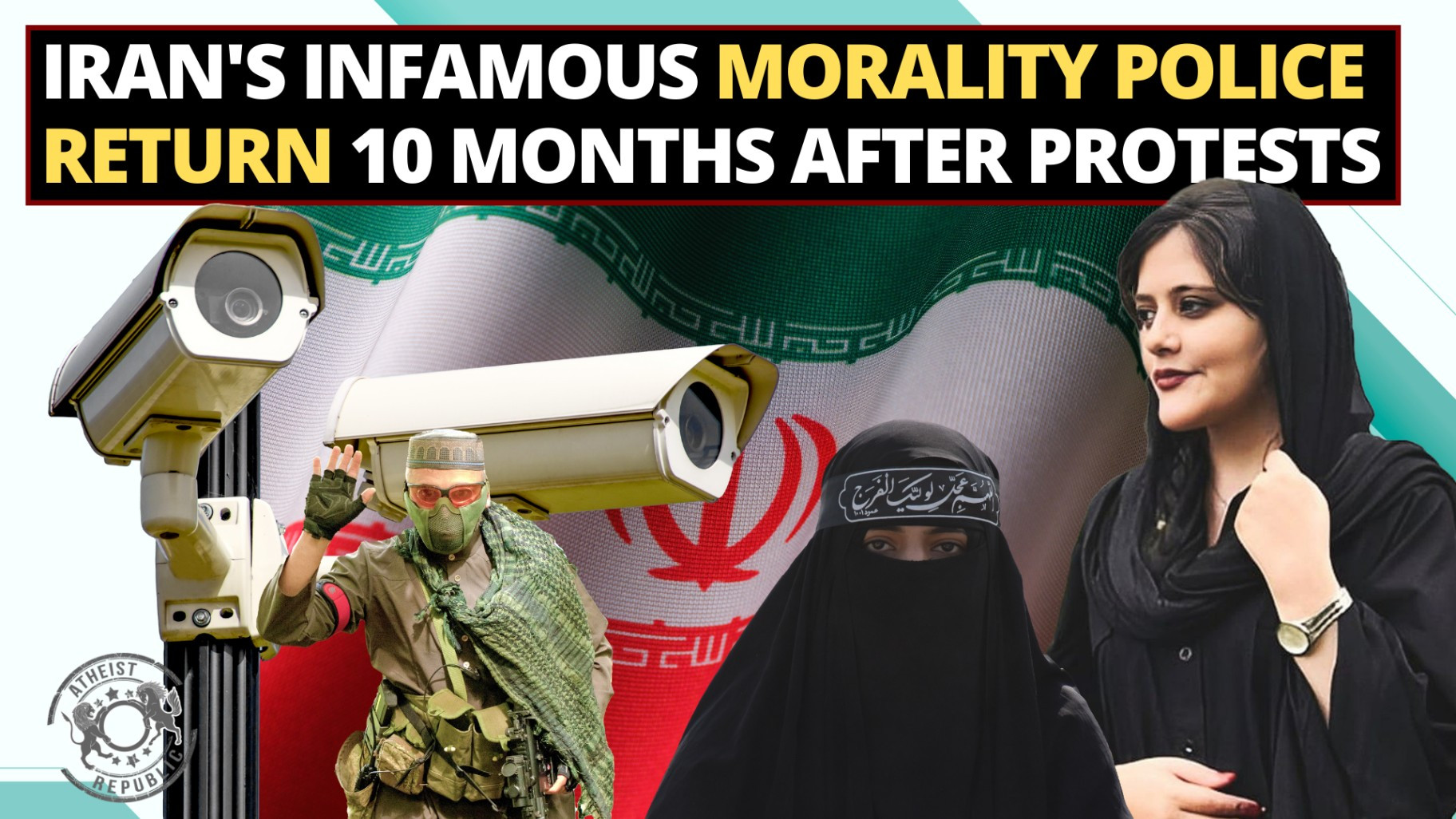
Nearly ten months after the death of Mahsa Amini under police custody, which sparked one of the largest revolutions in Iran since the 1979 Revolution, the country’s “morality police” are back on the streets again, with police vans reportedly patrolling once again to find women who were found not wearing the hijab.
The controversial measure was announced over the weekend along with a series of other severe actions that are being taken against women just 10 months after the death of Mahsa Amini in police custody, an event that sparked bloody nationwide protests. https://t.co/TGPOwuAfd0
— ABC News (@ABC) July 18, 2023
The revamped police force will not be called “morality police” but will be equipped with body cameras. The Iranian government made this announcement after reports of unmarked vans patrolling cities such as Tehran and Shiraz and stopping those violating the mandatory hijab laws were circulating in the country.
Iran’s patrols' return sparked demonstrations, with protesters taking to the streets after three women were arrested in the city of Rasht. Saeed Montazer al-Mahdi, the spokesperson for the Iranian police, told Tasnim News that the morality police would conduct car and foot patrols across the country and apprehend those who wear “extraordinary clothing” and “still insist on breaking the norms.”
Awful news for the women of Iran
— Dan Hall (@lcdesign_build) July 17, 2023
The state-affiliated Tasnim estimated that as many as 10% of Iranian women are not wearing the hijab or covering their heads properly, with images of uncovered women frequently circulating on social media. Amini’s death prompted a massive civil disobedience campaign among Iranian women, who marched under the banner of Zan, Zendegi, Azadi, or Women, Life, Freedom in Farsi.
Nevertheless, the Islamic Republic refused to budge and continued to enforce its mandatory Islamic dress code strictly. The Iranian government violently suppressed protests against its laws and authority, arresting and killing thousands. Since the demonstrations slowly subsided, Iranian officials and clergy members have discussed how to enforce the mandatory hijab law more harshly.
Biden’s fault
— Pete NoWhiteflag (@PNowhiteflag) July 16, 2023
Recently, female university students in Iran who failed to comply with the regime’s mandatory hijab law faced harsh punishment for their actions, such as being suspended, receiving zero grades, or even being expelled from their universities.
Even Iranian celebrities are not safe from the clutch of the Iranian regime. Recently, actress Azadeh Samadi was sentenced to “counseling” sessions to cure her “personality disorder,” and her phone was confiscated after she was seen attending a funeral while wearing a cap instead of the hijab.
2023, and the youth of Iran are too lazy to fight their cultist government.
— Skipmcskipperson (@JohnS53476766) July 17, 2023
This decision prompted the country’s tourism minister, Ezzatollah Zarghami, to react on Twitter, saying that “publicly providing a mental health certificate for hijab violators, instead of solving the problem of hijab and chastity, will cause more and more important challenges.”
Meanwhile, the office of the United States special envoy to Iran condemned the decision by the Iranian government to reinstate its police force.
“Concerned by reports that Iran’s so-called morality police are again cracking down to enforce mandatory hijab. It seems the regime has learned nothing from the protests. Women and girls everywhere should be allowed to wear whatever they want.” the US special envoy to Iran wrote on Twitter. “Iranian conservatives regard the display of hair as licentious and provocative to men, although there is nothing explicit in the Qur’an that supports a compulsory ban.”
